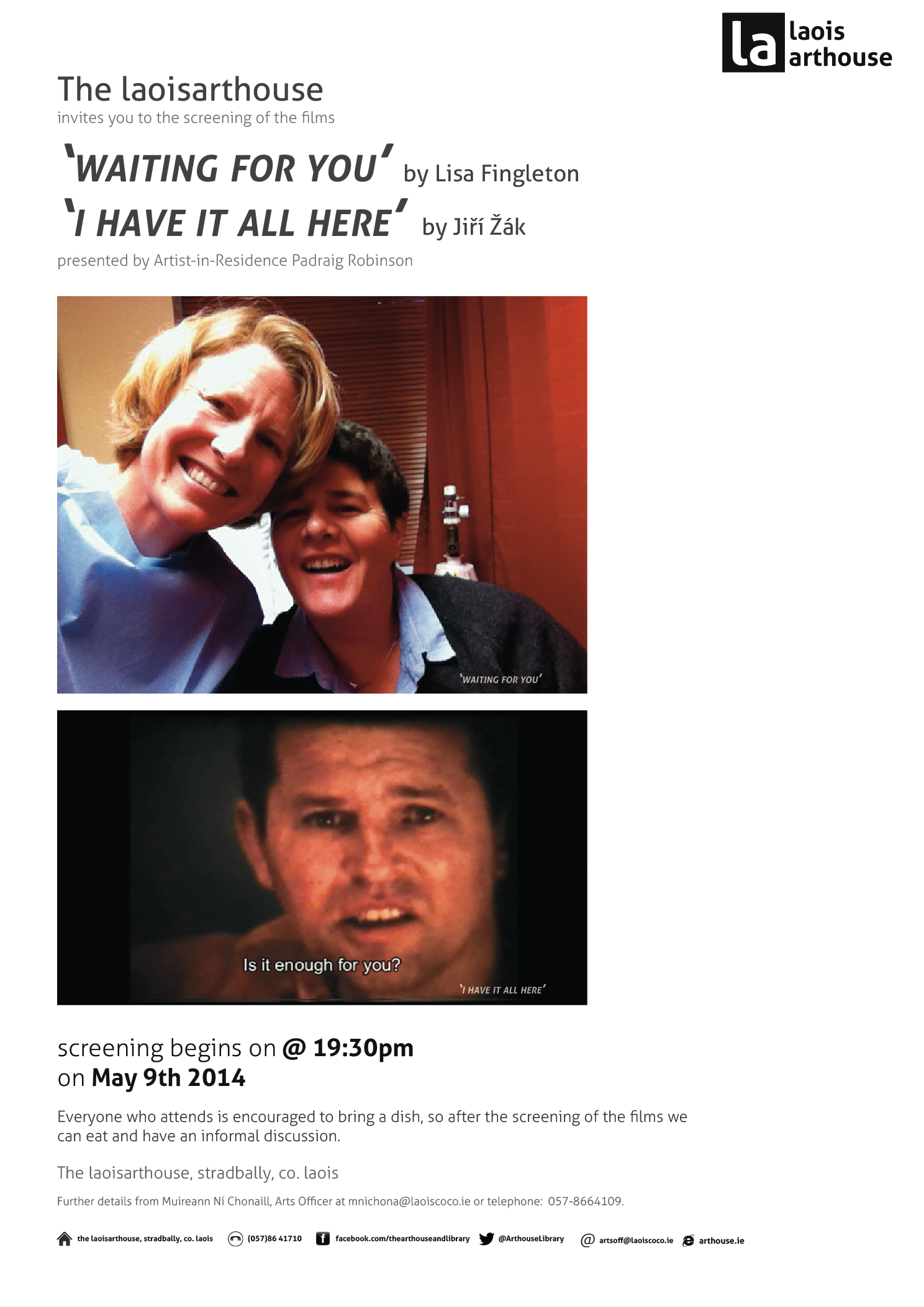Screening of Films By Lisa Fingleton and Jiří Žák at The Laois Arthouse, Stradbally on May 9th 2014.
The Laois Art House is pleased to present Lisa Fingleton’s film ‘Waiting for you’ on the 9th May 2014. Lisa Fingleton is an award winning artist and filmmaker, originally from Stradbally, Co. Laois. Artist-in-Residence Padraig Robinson will also screen a short film by Czech artist Jiří Žák called ‘I have it all here’.
Screening begins at 7:30pm sharp on May 9th. Everyone who attends is encouraged to bring a dish, so after the screening of the films we can eat and have an informal discussion.
‘Waiting for you’ documents two women, living on a small farm in rural Ireland, and the highs and lows of the trying to have a baby. The video diary is addressed to the much longed for baby.’ Žák’s ongoing video project ‘I have it all here’ explores his grandfathers obsessive relationship to photographic technology, as a means of documenting his and his families life. The man must now learn to digitalize all of his analogue photographs, lest he have no “space” left in which to live in.
Both films screened in this event represent longing and preservation in the most private of spheres — the desire for, or the continuation of, family history. The reproductive function of the camera itself becomes the means of presenting intimate relationships to technology as a form of diary and remembering. But these films are more than documents of accumulating life; the films also present the effect that photographic and film technology have had on how we perceive and deal with the ‘private’. Unlike the handwritten diary, the video camera and the photographic image have a built in purpose to make something available to be seen by an absent or future onlooker. The written diary is usually always directed inward toward the private self, while the photograph is by its nature public. Even the titles of the two films “Waiting for you” and “I have it all here”, have a directness in relation to their respective contents. Although both films present similar technologies of diary or biography, they deal with two distinct uses of the image in relation to absent or future family. “Waiting for you” is a longing to create life, with the film being addressed to a future family member; while “I have it all here” is a document of the artist’s grandfather, and his relationship to technology as a means of preservation and celebration. Rather than ending in a reductive comparison of life and death, both films present a certain use of technology in genuine acts of memory and remembering. But what does it mean for the artists to make these ‘private’ technologies public?

